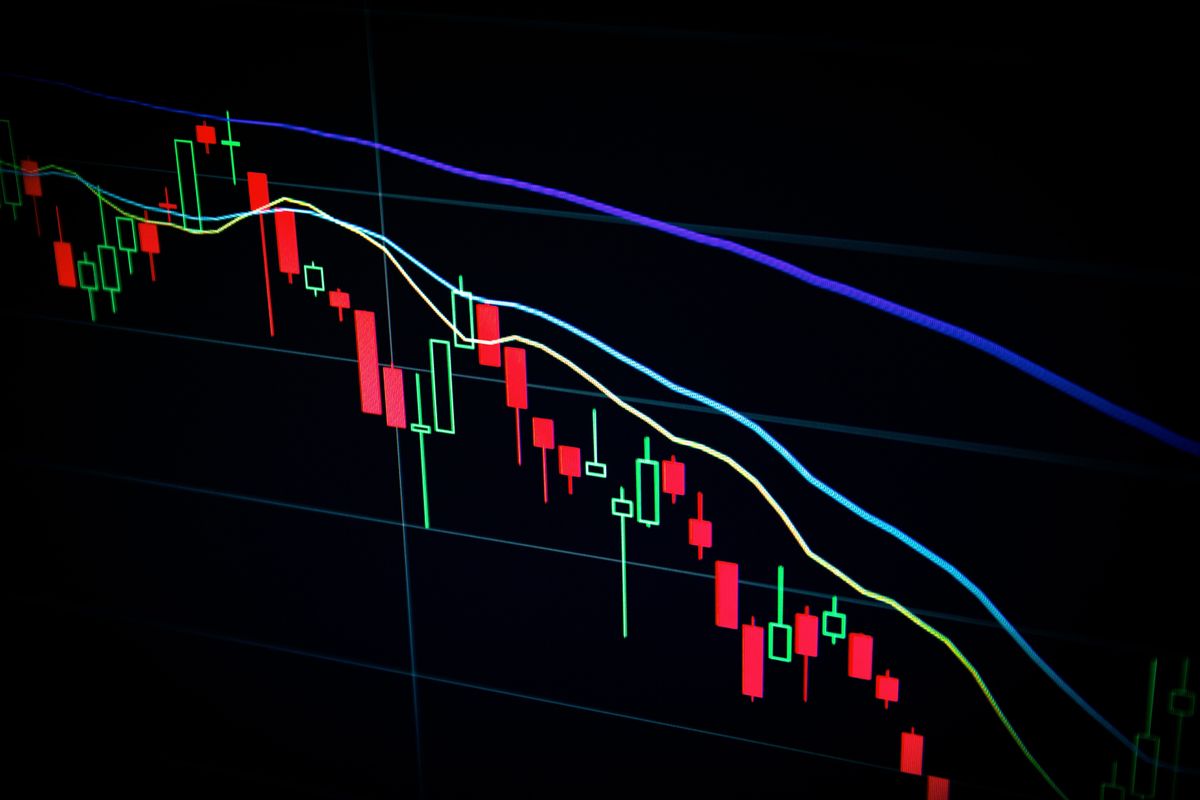Auquan's Weekly Wrap | 20-24 June: What you might have missed
Recap of the week's market activity: China's EV battery supply chain exposure to forced labor, Revlon's bankruptcy, aerospace supply chain shortages, Chile miners strikes, and more.

Top Themes
China EV Battery Supply Chain Forced Labor Exposure

The New York Times report finds that there are hundreds of Uyghurs in China that are working for Xinjiang Nonferrous Metal Industry, a large company that 'produces raw materials for EV batteries as part of a so-called work transfer program'.
Despite the denials from Chinese authorities, the report, that was released amidst the Uyghur Forced Labor Prevention Act discussions in the US, shows that Uyghurs and workers from other ethnic minorities are forced to move from South Xinjiang to the North in order to work in industrial jobs.
Xinjiang Nonferrous Metal Industry manufactures minerals and metals such as lithium, copper and nickel, and exports to the UK, Germany, Japan, India and the US. Thousands of more companies, including EV battery manufacturers, could have Xinjiang forced labour exposure in their supply chains.
- 21 June: China’s electric vehicle battery supply chain shows signs of forced labor, report says
- 20 June: Red Flags for Forced Labor Found in China's Car Battery Supply Chain
- 20 June: China: US Law Against Uyghur Forced Labor Takes Effect
Revlon Bankruptcy Filing

Revlon's raw material vendors have stopped sending shipments, and many were demanding payment of past debts or deposits on future deliveries. Without access to raw materials, Revlon cannot meet sales demands, leaving the company with dwindling cash to solve its supply problem.
Other cosmetics companies may be facing similar issues, for example Symrise AG and Givaudan have both mentioned their raw material and ingredient exposures to global supply chains with a challenging external environment in previous earnings.
- 22 June: Revlon Stock Surges After Bankruptcy Filing
- 20 June: Revlon borrows $375 million in bankruptcy to shore up supply chain
- 16 June: Revlon files for bankruptcy protection
On the other hand, just last week the trade association for US Fragrance Manufacturing applauded the passing of the Ocean Shipping Reform Act, believing it will mitigate the “ripple effect down the value chain” of delays in fragrance supply.
- Fragrance Creators Applauds Passage of the Ocean Shipping Reform Act Into Law
- How will the Ocean Shipping Reform Act benefit beauty businesses?
Meanwhile, the Citi-Revlon debacle still continues; as the Citigroup' infamous payment error to Revlon lenders becomes an even more growing concern, the bank fails to claim the remaining $500mn of loan principal over the accidental transfer.
- Citi's $900 Million Revlon Gaffe Risks Getting Even More Painful
- Revlon bankruptcy complicated by Citi's $900mn error
Aerospace Supply Chain Shortages

An employee works in the cockpit of a Boeing P-8 Poseidon maritime patrol aircraft on the production line at Boeing's 737 factory in Renton, Washington, U.S. REUTERS/Jason Redmond
Further pressure is growing on Airbus to fill the void - as Boeing's CEO recently stating supply chain problems will persist almost until the end of 2023. This is partly due to the faster than expected return of demand, but led by labour shortages at mid-tier and smaller suppliers.
Gulf carrier Emirates is weighing more Airbus SE A350 jetliner orders to help fill gaps in its fleet in coming years - however Airbus customers are also being warned deliveries of aircraft, already partially delayed by European factory congestion, could also be pushed back further as a result of the CFM engine delays.
- 22 June: Boeing expects supply chain problems to last through most of 2023
- 22 June: Emirates Weighs New Airbus Order as Boeing Deliveries Drag Out
- 14 June: Boeing delivers 35 planes in May as it grapples with supply chain problems
- 24 May: Supply chain, labour snags delay CFM jet engines
Chile Mining Operations Pollution

Miners block access to the Ventanas foundry, one of six mining facilities where demonstrators have gathered at the start of a national strike of Chile's mining workers [Raul Zamora/Aton Chile/AFP] (Source)
With Chilean state-owned copper producer Codelco (the world’s largest) being hit by a nationwide strike - concerns grow over labour at mining facilities in Chile due to environmental issues, allegedly polluting smelter in the country’s central zone.
- 23 June: Chilean miners strike at copper giant Codelco; government plays down impact
- 22 June: Chile copper workers begin nationwide strike over smelter closure
- 21 June: Copper price rises as looming strike in Chile adds to supply
- 18 June: Codelco unions ready strike after troubled Chile smelter shuttered
To add to supply chain disruptions, global mining companies could also face a possible new Chilean mining royalty bill, which will raise tariffs on firms operating there. This could force miners to re-assess the feasibility of their investments in the region, with profit margins at risk.
- 16 June: Chile tax reform, mining royalty 'priority number one,' minister says
- 7 March: Chile steps closer to resource nationalism
Rising Themes to Watch Out
UK Small Business Equity Investment Growth
- 24 June: Record year for equity investment in Wales’s smaller businesses
- 22 June: Equity investment in smaller UK businesses hit a record £18.1bn last year
- 22 June: UK state-backed development bank prepares for tech valuation falls
- 22 June: South West tops UK regions for equity investment among SMEs
Source of data: Small Business Equity Tracker 2021
